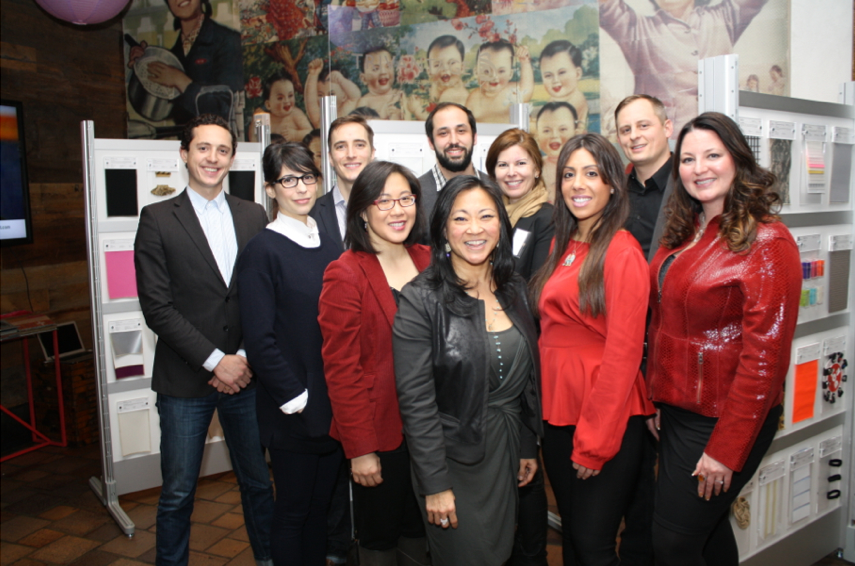Recently, Facebook has been in the news for its highly anticipated, if poorly executed IPO, and to a lesser extent, the stealth marriage of its young CEO Mark Zuckerberg to his college sweetheart. Flying under the radar is COO Sheryl Sandberg’s commencement speech to Harvard Business School’s class of 2012.I finally took some time out today to listen to Sheryl Sandberg's address and I was so impressed that she gave such a great speech illustrating the science of Career Strategies in this new world economy.
Among other topics, she ruminated on the breakdown of traditional methods in career pursuit, insightful views on being a truly successfully leader/manager, and the continuing gender inequality in the workplace.
Below are some slightly paraphrased quotes that I thought really hit hard, and what I thought about them. If you have some free time, I definitely suggest taking a look at the video or transcript.
On Career Strategies
Sheryl gave some great advice on how to how careers work in today's society. Much of this is what I lecture about in my Careers Strategies Course and Workshops.
“Careers are not a ladder they are a jungle gym.”
“Look for opportunities, for growth, for impact and for mission.”
“Move sideways, move down, move on, move off.”
“Build your skills not your resume.”
“Evaluate what you can do not the title they're going to give you.”
“Do real work. Take a sales quota, a line role, an ops job.”
“Don't plan too much and don't expect a direct climb.”
On Leadership
As traditional structures are breaking down, leadership has to evolve as well. From hierarchy to shared responsibility. From command and control to listening and guiding.
Your strength will not come from some place on some org chart, Your strength will come from building trust and earning respect. You're going to need talent and skill and imagination and vision. More than anything else you're going to need to communicate more authentically, to speak so you inspire people around you, and to listen so you continue to learn each and everyday on the job.
Hierarchical, rigid business structures are making way to flatter and more collaborative models, with clear, authentic communication and an open mind as must-have tools to succeed. We look for these attributes in all of the candidates we work with at all levels. Our more progressive clients know this as well and seek these attributes for their businesses.
On Speaking Honestly
The work place is an especially difficult place for anyone to tell the truth. Because no matter how flat we want our organizations to be, all organizations have some form of hierarchy. And what that means is that one person's performance is assessed by someone else's perception. This is not a set up for honesty. Think about how people speak in a typical workforce.
Truth is better used by using simple language... People rarely speak this clearly in the workforce or in life and as you get more senior, not only will people speak less clearly to you but they will overreact to the small things you say.
Next time you hear something that’s really stupid, don’t adhere to it, fight it or ignore it, even if it’s coming from me or Mark [Mark Zuckerberg that is].
Individuals and businesses need to understand the structural barriers that inhibit proper communication, realize how it affects their interactions and adjust accordingly. When they realize this and put it into practice, not only do they garner respect, but they also lay the foundation for a successful future.
On Being A Good Leader
A good leader recognizes that most people won’t feel comfortable challenging authority, so it falls upon authority to encourage them to question. It’s easy to say that you’re going to encourage feedback but it’s hard to do, because unfortunately it doesn’t always come in a format we want to hear.
When you’re the leader, it is really hard to get good and honest feedback, no many how many times you ask for it. One trick I’ve discovered is that I try to speak really openly about the things I’m bad at, because that gives people permission to agree with me, which is a lot easier than pointing it out in the first place. To take one of many possible examples, when things are unresolved I can get a tad anxious... Ask yourself, how will you lead? Will you use simple and clear language? Will you seek out honesty? When you get honesty back, will you react with anger or with gratitude? As we strive to be more authentic in our communication, we should also strive to be more authentic in a broader sense. I talk a lot about bringing your whole self to work— something I believe in deeply.
Creating a clear map of how you want to lead and what you want from those you lead helps set a standard by which you can be held. Moreover, learning how to foster and accept constructive criticism will make you a better leader (and person :) ). It's not often an easy thing to uphold but it's incredibly rewarding when you accomplish this. I practice this as well with my team running my business.
On Company Culture
Motivation comes from working on things we care about but it also comes from working with people we care about, and in order to care about someone, you have to know them. You have to know what they love and hate, what they feel, not just what they think. If you want to win hearts and minds, you have to lead with your heart as well as your mind. I don’t believe we have a professional self from Mondays through Fridays and a real self for the rest of the time. That kind of division probably never worked, but in today’s world, with a real voice, an authentic voice, it makes even less sense.
I talk about my hopes and fears and ask people about theirs. I try to be myself. Honest about my strengths and weaknesses and I encourage others to do the same. It is all professional and it is all personal, all at the very same time.
One major distinguishing characteristic of successful modern business from those in the past is the bridging of professional and personal lives. Learn what fundamentally drives the people your company and speak to those motivations then the company will drive itself.
On Women In The Workforce
We need to start talking about how women underestimate their abilities compared to men. Success and likeability are negatively correlated. That means that as a woman is more successful in your workplaces, she will be less liked. This means that women need a different form of management and mentorship, a different form of sponsorship and encouragement, and some protection, in some ways more than men.
When they hear a woman is really great at her job but not liked, take a deep breath and ask why. We need to start talking openly about the flexibility all of us need to have both a job and a life.
I’ve spent 20 years in the creative industry and observed that women in the field are not immune from the challenges their peers face in other industries. Keeping a level head in the face of adversity and openness in addressing the issue are small, but necessary steps in the direction.
____________________________________________________________________________________________
The professional world is in the midst of a revolution. The most successful job seekers adapt to the new environment. They focus primarily on skills and value they can add rather than superficial titles. They take risks joining companies that are challenging norms, pushing innovation and are less concerned with location and prestige. We all need to continue this revolution.
 In partnership with IDSA NYC, Yeh IDeology hosted the 4th annual Design Summit on February 27th. This year’s design summit featured a panel of cross-disciplinary design leaders including Erica Eden (Founder of Femme Den and Global Director of Design Innovation of PepsiCo), Rich Thrush (Director of Kaz Incorporated), Mei Mah (Deputy Director of Education at Cooper Hewitt), Dan Grossman (Deputy Design Directory of Martha Stewart Living Omnimedia).
In partnership with IDSA NYC, Yeh IDeology hosted the 4th annual Design Summit on February 27th. This year’s design summit featured a panel of cross-disciplinary design leaders including Erica Eden (Founder of Femme Den and Global Director of Design Innovation of PepsiCo), Rich Thrush (Director of Kaz Incorporated), Mei Mah (Deputy Director of Education at Cooper Hewitt), Dan Grossman (Deputy Design Directory of Martha Stewart Living Omnimedia).

